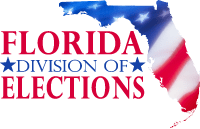Ballot: Homestead exemption, public finance

Election Day on Tuesday, Nov. 5, will not only be a Presidential election, but it will have a large number of state, federal and local candidates on the ballot, including a Florida Senatorial election. It will also have six ballot initiatives.
In the last two weeks, the Boca Beacon has reviewed the first four. This week, we review the last two, on Homestead Property Tax Exemptions and The Repeal of Public Campaign Financing Requirement.
Florida Amendment 5
The Annual Inflation Adjustment for Homestead Property Tax Exemption Value Amendment
The amendment would “require an annual adjustment for inflation to the value of current or future homestead exemptions that apply solely to levies other than school district levies and for which every person who has legal or equitable title to real estate and maintains thereon the permanent residence of the owner, or another person legally or naturally dependent upon the owner is eligible.
This exact text appears in the initiative. It reads “(2) The twenty-five thousand dollar amount of assessed 43 valuation exempt from taxation provided in subparagraph (a)(1)b. 44 shall be adjusted annually on January 1 of each year.” It would go into effect January 1, 2025.
A “yes” vote supports an annual inflation adjustment to the amount of assessed value that is exempt from property taxation.
A “no” vote opposes an annual inflation adjustment to the amount of assessed value that is exempt from property taxation.
As of 2024, The property tax (millage) rates in Florida are set by counties, school districts, cities and special districts. Homes in Florida are assessed at just value (market value), minus the homestead exemption. The homestead exemption reduces the taxable value of a property.
Every primary residence is eligible for a $25,000 homestead exemption, which exempts that amount from all taxes. Another $25,000 homestead exemption is applied on a homestead’s value between $50,000 and $75,000, which exempts that amount from all taxes except school district taxes.
The amendment would provide for an annual inflation adjustment for the value of the homestead property tax exemption that applies to non-school taxes. The adjustment would be made every year on January 1, based on the percent change in the Consumer Price Index reported by the U.S. Department of Labor – if the change is positive.
Amendment 6, Campaign Financing
The Repeal of Public Campaign Financing Requirement for Statewide Campaigns Amendment proposes repealing provision in the State Constitution which requires public financing for campaigns of candidates for elective statewide office who agree to campaign spending limits.
A “yes” vote supports repealing the state constitutional provision that provides for public financing of campaigns for those running for elective statewide office who agree to campaign spending limits.
A “no” vote opposes repealing the constitutional provision that allows for the public financing of campaigns, therefore continuing to allow public campaign financing for statewide candidates who agree to spending limits.
The amendment would repeal Section 7 of Article VI of the Florida Constitution, which provides for public campaign financing for statewide candidates who agree to spending limits. Currently, under Article VI, public campaign financing is available for candidates for the offices of governor, and elected cabinet members (attorney general, chief financial officer and commissioner of agriculture). To qualify for public campaign financing, a candidate must not be running unopposed; agree to expenditure limits; raise $150,000 (for gubernatorial candidates) or $100,000 (for cabinet candidates); limit loans or contributions from the candidate’s personal funds to $25,000 and limit contributions from political parties to $250,000; and report campaign financing data to the division of elections and submit to a post-election financial audit.
The public campaign financing program is funded by the General Revenue Fund. In 2022, the expenditure limit for gubernatorial candidates receiving public campaign financing was $30.29 million ($2.00 per registered voter) and the limit for cabinet candidates was $15.14 million ($1.00 per registered voter).
Florida voters adopted Amendment 11 in 1998, which provided for public campaign financing for statewide offices. The amendment was approved with 64.12 percent of voters in favor and 35.88 percent opposed.
In 2010, the Florida State Legislature referred Amendment 1 to the ballot to repeal the constitutional provision providing for public campaign financing. The amendment received 52.49 percent of the vote in favor but was defeated because constitutional amendments in Florida require a 60 percent supermajority vote to be adopted.
Florida is one of 12 states with a public campaign finance program for candidates running for governor and lieutenant governor.









